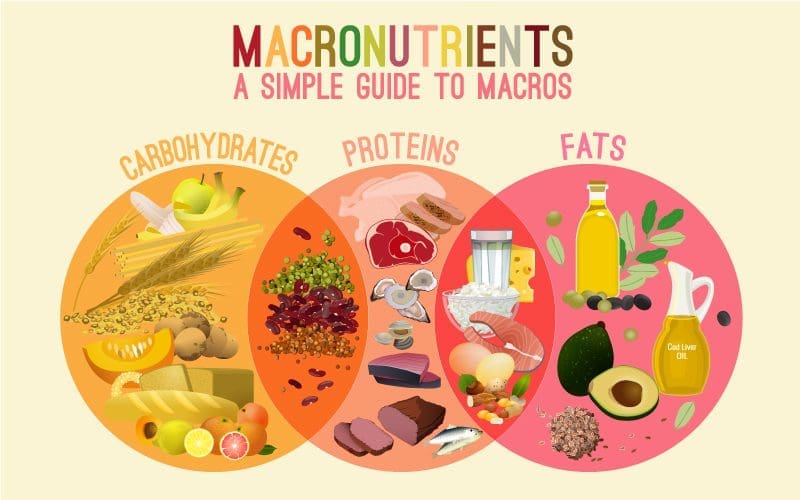When it comes to crafting a healthy and well-rounded diet, understanding macronutrients is essential. Macronutrients, or macros for short, are the major nutrients that provide the energy your body needs to function. In this article, we’ll explore the three primary macronutrients—carbohydrates, proteins, and fats—and delve into their roles, sources, and the importance of balancing them to support overall health and well-being.
1. Carbohydrates: The Body’s Primary Energy Source
Role: Carbohydrates are the main source of energy for your body. They are broken down into glucose, which is used for immediate energy or stored in the liver and muscles for later use.
Sources: Include fruits, vegetables, whole grains, legumes, and starchy foods like potatoes and rice.
Importance: Carbs provide a quick and easily accessible energy source, making them crucial for daily activities and exercise. Opt for whole, unprocessed carbs for sustained energy and added nutritional benefits.
2. Proteins: Building Blocks for Growth and Repair
Role: Proteins are essential for the growth, repair, and maintenance of tissues in your body. They play a crucial role in the formation of muscles, enzymes, hormones, and immune system components.
Sources: Found in meat, poultry, fish, dairy products, eggs, legumes, nuts, and seeds. Each source provides a unique set of amino acids, the building blocks of proteins.
Importance: Adequate protein intake is vital for building and repairing tissues, especially for those engaged in physical activity or looking to maintain muscle mass. Aim for a variety of protein sources to ensure a complete range of amino acids.
3. Fats: Essential for Body Functions and Energy Storage
Role: Fats are a concentrated source of energy and play a crucial role in the absorption of fat-soluble vitamins (A, D, E, and K). They also contribute to cell structure, brain function, and hormone production.
Sources: Include avocados, nuts, seeds, olive oil, fatty fish, and dairy products. Choose sources rich in unsaturated fats for heart health.
Importance: While moderation is key, healthy fats are essential for overall health. They provide a sustained source of energy and support various bodily functions. Aim to include a mix of monounsaturated and polyunsaturated fats in your diet.
Striking the Right Balance
For a balanced and nutritious diet, it’s crucial to find the right balance of macronutrients based on your individual needs, lifestyle, and health goals.
1. Individual Needs: Consider factors such as age, sex, weight, activity level, and health conditions when determining your macronutrient needs. Individuals with different goals, such as weight loss, muscle gain, or maintenance, may require different ratios of macronutrients.
2. Balanced Meals: Aim to include a variety of macronutrients in each meal to ensure you’re meeting your nutritional needs. For example, a balanced meal might include lean protein, whole grains, and a mix of colorful vegetables.
3. Mindful Eating: Pay attention to hunger and fullness cues, and eat mindfully to avoid overeating or undereating. Listen to your body and provide it with the nutrients it needs to function optimally.
4. Stay Hydrated: Proper hydration is often overlooked but is crucial for overall health. Water is not a macronutrient, but it plays a vital role in digestion, nutrient absorption, and overall well-being.
Conclusion: Building a Foundation for Health
Understanding macronutrients lays the foundation for making informed and healthy food choices. By incorporating a variety of carbohydrates, proteins, and fats into your diet and finding the right balance for your individual needs, you can support your body’s functions, promote overall health, and enjoy sustained energy throughout the day.


















